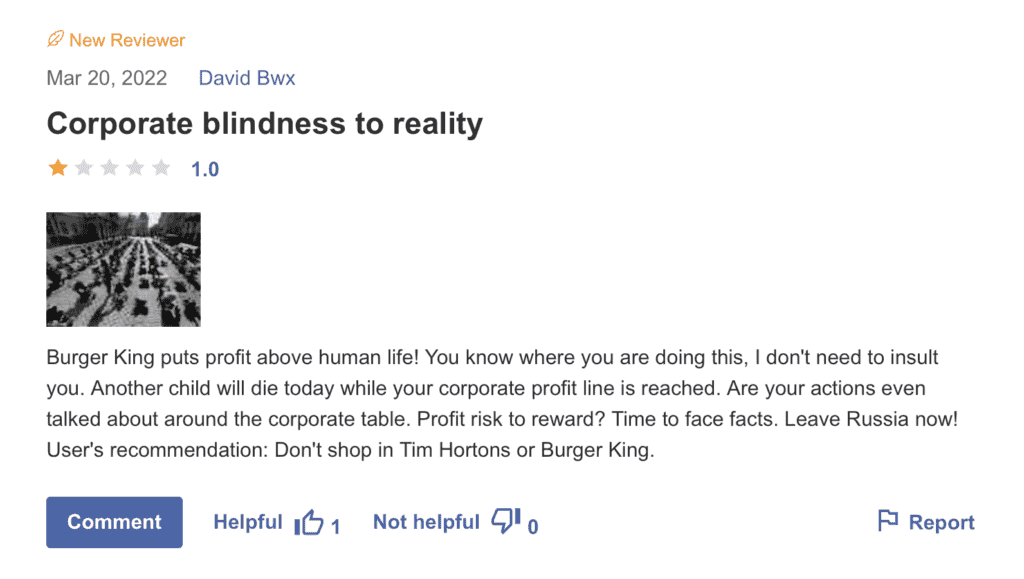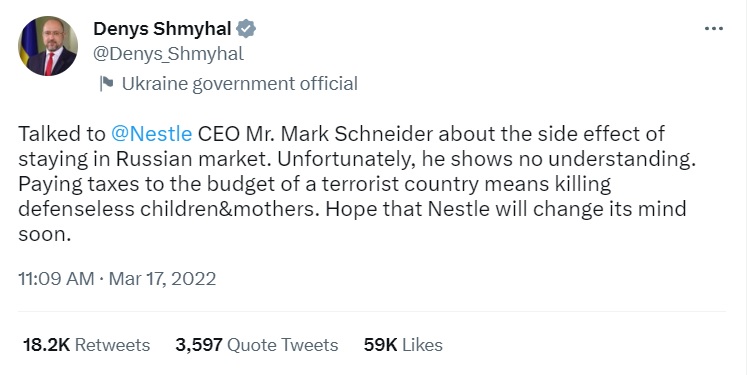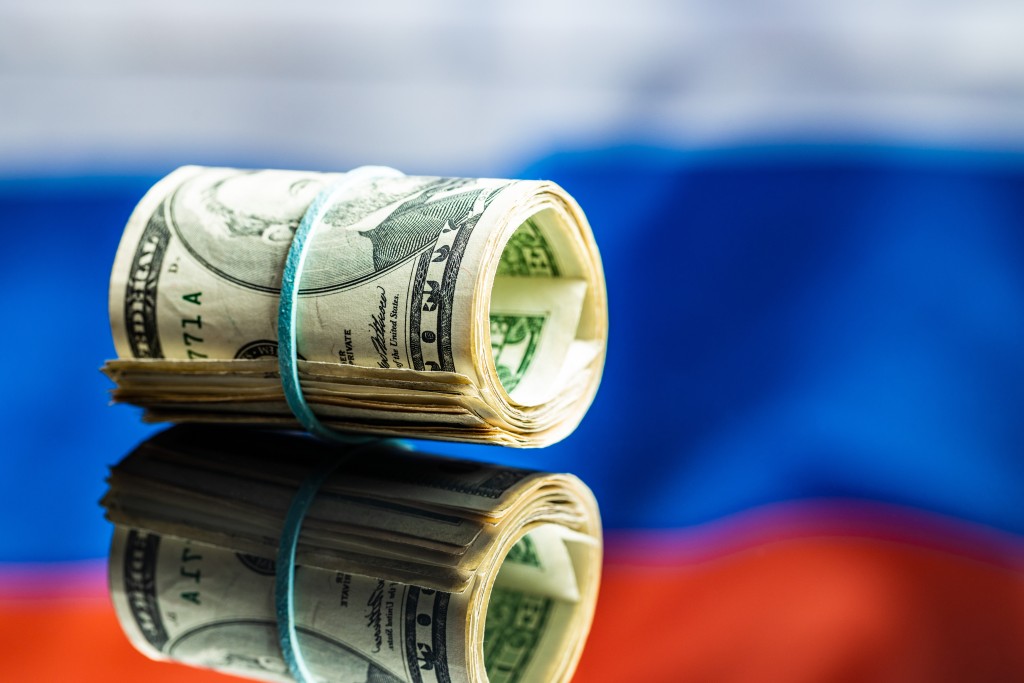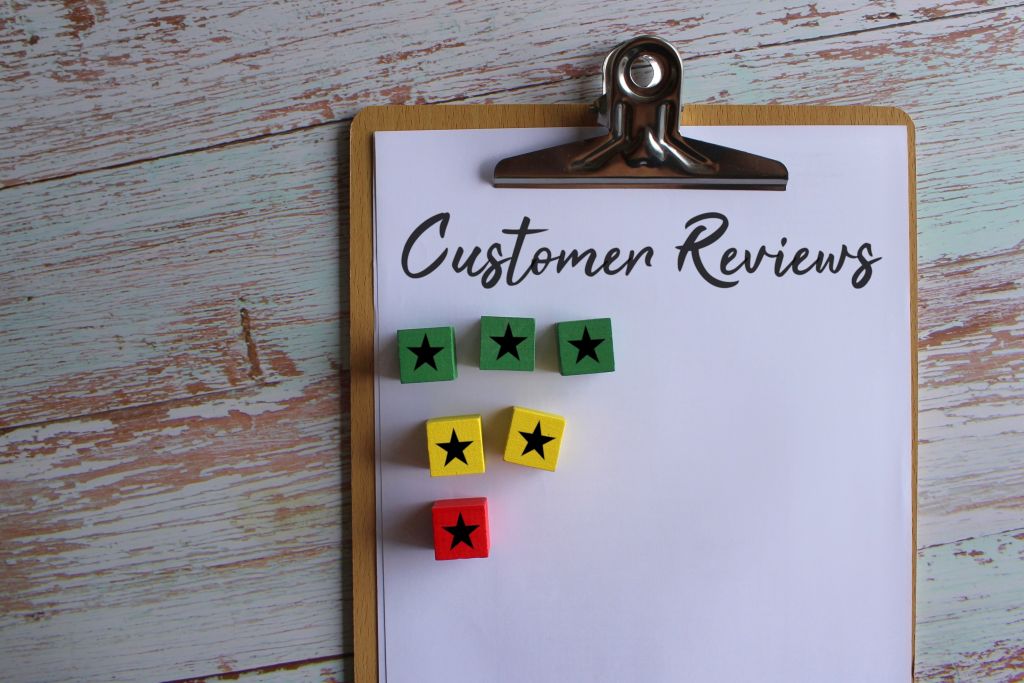Updated: March 16, 2023
Freedom of speech, freedom of expression, and the freedom to choose are fundamental to a fair and democratic society.
Individual freedoms pivot on the right to be informed and the right to make judgments and choices based on open access to the realities of this world.
In this post, PissedConsumer.com wants to emphasize this right to be informed and calls for a boycott of the companies that continue to do business with Russia a year after the full-scale Russian-Ukrainan war started.
Following this initiative, PissedConsumer.com has introduced a new feature on company profile pages that highlights whether a company is conducting business in Russia. This move aims to help consumers identify and boycott these companies, thus expressing solidarity with the Ukrainian people.
As consumers, we base the decisions we make on a variety of factors. Cost and convenience often take the lead, with ethical considerations following.
Yet, the globalized world is changing, increasingly, the way we consume has to knock on effects that influence the lives of people across the globe. Now, more than ever, it is crucial to be aware of where your money is going, where it ends up, and what it is funding. In particular, when it concerns war and civilians being hurt.
Providing Fuel That Perpetuates Ukraine-Russia Conflict
When an international company conducts business outside its home nation, it is subject to the taxes of the country in which it operates.
How this tax revenue is spent is determined by the priorities of the state in which the company conducts business. It could contribute to education, national infrastructure or, indeed, fund military production and war.
On the 24 of February 2022, after amassing on the border for months, the Russian military entered Ukraine. This action was anticipated by the government but still came as a shock. The Russian invasion quickly prompted an international response in the form of sanctions on Russian banks, businesses, and individuals.
Why Impose Sanctions on Russia?
The purpose of sanctions is to either bring Russia under sanction to the negotiating table or to strengthen domestic opposition to its government and compel the population to force regime change.
In addition to sanctions imposed by states, hundreds of Western and international companies have withdrawn their operations from Russia.
Yet, despite the Russia-Ukraine war, many world brands continue to conduct business in Russia.
US consumers have voiced multiple complaints about international brands that have yet to pull out of Russian markets. A growing number of online reviews left by regular consumers on PissedConsumer.com express concern at this ‘hall of shame’ and advocate a ‘Russia boycott’.
With such growing calls for a boycott, it remains to be seen how large international brands can maintain a presence in Russia without severely damaging their global reputation and revenue. At the same time, it is up to consumers to make a choice to either support such brands by buying from them or to boycott them in a response to their decision to financially support the country of aggressor and the killing of people during this war.
 What Western Companies Currently Do Business on the Russian Market?
What Western Companies Currently Do Business on the Russian Market?
Procter & Gamble
Despite discontinuing its investments and reducing its product offerings in Russia, P&G remains committed to providing essential health, hygiene, and personal care items that are "needed by the many Russian families who depend on them in their daily lives."
The National Agency on Corruption Prevention (NACP) recognized Procter & Gamble as an international sponsor of the war. In March 2022 the company announced the discontinuation of capital business investments in Russia and leaving only health and hygiene products in the market. Currently, P&G corporation owns two plants in Russia, one of which is the razors and blades Gillette factory, and employs about 2,500 people.
Moreover, staying in Russia enables the company to fulfill its obligation toward mobilization. Under the new Russian law, businesses operating in the country are compelled to partake in mobilization initiatives, aid in the enlistment of staff in the armed forces, and fund their military gear.
Nestle
Ukrainian President Volodymyr Zelenskyy recently called out Nestle for remaining in Russia, whilst Ukrainian PM, Denys Shmyhal, took exception to Nestle CEO Mark Schneider:
"Unfortunately, he shows no understanding. Paying taxes to the budget of a terrorist country means killing defenseless children and mothers. I hope that Nestle will change its mind soon."
Whilst Nestle has ceased supplying many consumer goods to Russia, items such as baby food, cereal, and pet food continue to enter the country.
In response, the company stated:
"We are doing whatever we can in Ukraine and neighboring countries to help alleviate this humanitarian catastrophe," the spokesperson added. "We are still one of the few active food companies in Ukraine and sometimes even manage to distribute food in Kharkiv."
The Swiss company has a long history of being on the receiving end of boycotts, and this isn’t the first time that Nestle has been caught in a controversy over questionable activities. The most well-known being the baby milk controversy, whereby Nestle aggressively marketed infant formula to parents in regions where breastfeeding was a safer choice due to poor water supply hygiene.
Nestle has continued to be accused of placing profit over responsibility to human life and scientific accuracy.
Burger King
Following the outbreak of the war, Restaurant Brands International, which own the Burger King brand, announced a closure to its franchises in Russia.
However, 800 Burger King restaurants are still trading in Russia. The company claimed that legal complexities prevent them from taking the previously stated action.
Subway
The US fast-food chain currently still has around 450 franchises open in Russia. Also citing a lack of control over independent franchises as the reason for this continuation. The company states that, even though it continues to operate in the country, it is donating profits made in the country to humanitarian causes.
Pepsi
PepsiCo, one of the world’s largest multinational snack food and beverage monopolies and the first Western brand to be manufactured and sold in the Soviet Union, declared that it will be ceasing the sale of its most popular soft drink brands in response to the Ukraine conflict. The company will continue to sell milk and baby food, however.
Updated lists of businesses and their current status with regard to Russia can be checked on the Yale website here or accessed on the Reuters website here.
Please share your comments and thoughts below. If you'd like to bring awareness, you are welcome to leave a review on the company via this form.




